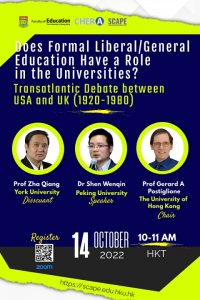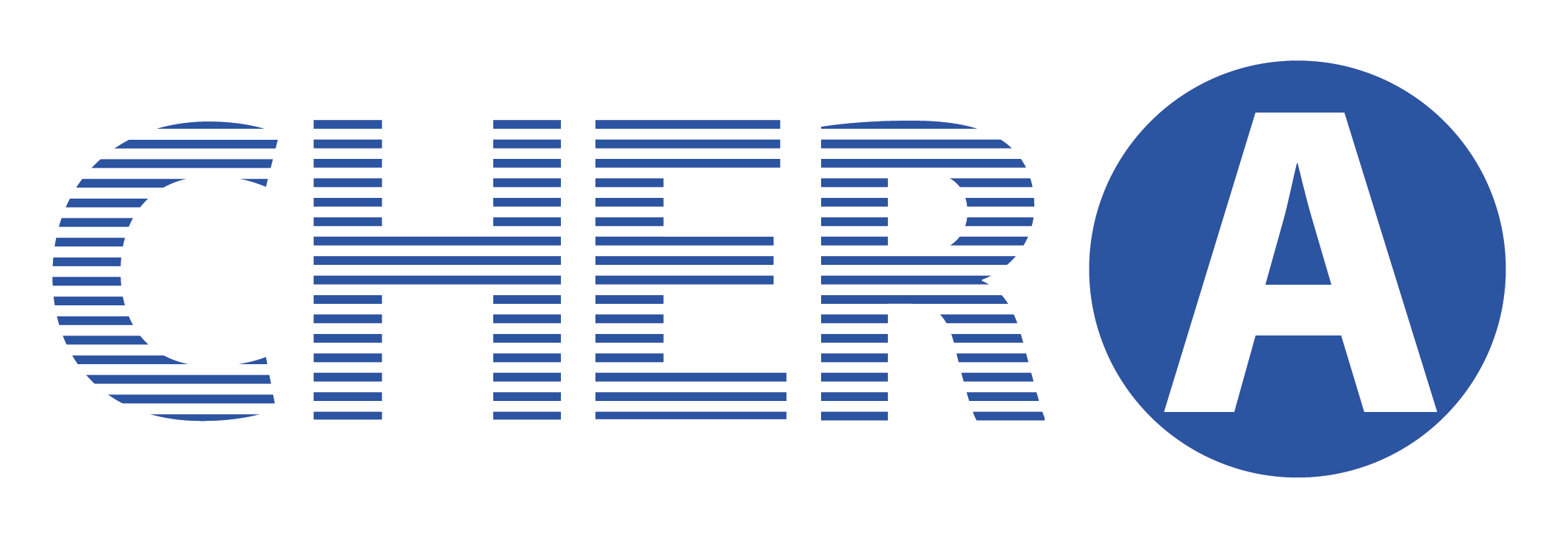Liberal Studies Education Series:
Does Formal Liberal/General Education Have a Role in the Universities?
A Transatlantic Debate between USA and UK (1920-1980)
Date: October 14, 2022 (Friday) (Hong Kong Time)
Time: 10:00-11:00 am
Format: Zoom
Chair: Prof Gerard A Postiglione The University of Hong Kong
Speaker: Dr Shen Wenqin, Peking University
Discussant: Prof Zha Qiang, York University
Abstract:
England is the birthplace of modern idea of liberal education and general education. From the 18th century to the mid-19th century, the model of liberal education based on classics and mathematics, best illustrated in John Henry Neman’s Classic Book The Idea of a University (1872), is dominant in British universities. However, after the second half of the 19th century, university education in England gradually moved towards specialization and a professional training model based on a three-year and single discipline approach pattern. Liberal/general education is mainly completed by non-formal education outside the classroom, such as student associations and residential colleges.
The American university education model was transplanted from the UK and was subsequently influenced by the German model, but it has always insisted on uniquely positioning formal general education (in the form of Core curriculum or distribution courses) in universities, and has become a global leader in liberal/general education in the 20th century. In addition to liberal/general education at pre-university stage, does formal liberal/general education have a role in the universities? Can the aim of liberal education achieve by training in a single disciplinary field (e.g., physics, economics, history, etc.)? In response to the above questions and concerns, educators in the UK and the US expressed divergent views from the 1920s to the 1980s. The US meant to promote its general education model in the UK after World War II, which was unsuccessful and even met with resistance. Through a historical review of the Transatlantic debate, this lecture attempts to answer why the UK and the US chose different paths for undergraduate education in the 20th century on the one hand, and to provoke contemporary reflection on the relationship between liberal/general education and the university on the other.
Bio:
Shen Wenqin is an Associate Professor of Higher Education at Peking University. He mainly studies the higher education system from the perspectives of intellectual history and Sociology of Science. He authored and co-authored publications focused on transnational history of idea and practice of liberal education (China, UK and US), international academic mobility (especially the mobility of college graduates, doctoral students and postdocs) and doctoral career trajectories. His researches have been published in international journals such as the Higher education, History of education quarterly, Journal of Sociology, Higher education quarterly, Studies in Higher education, etc. He is currently serving as a coordinating editor for Higher education.

